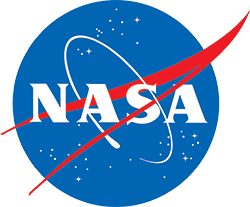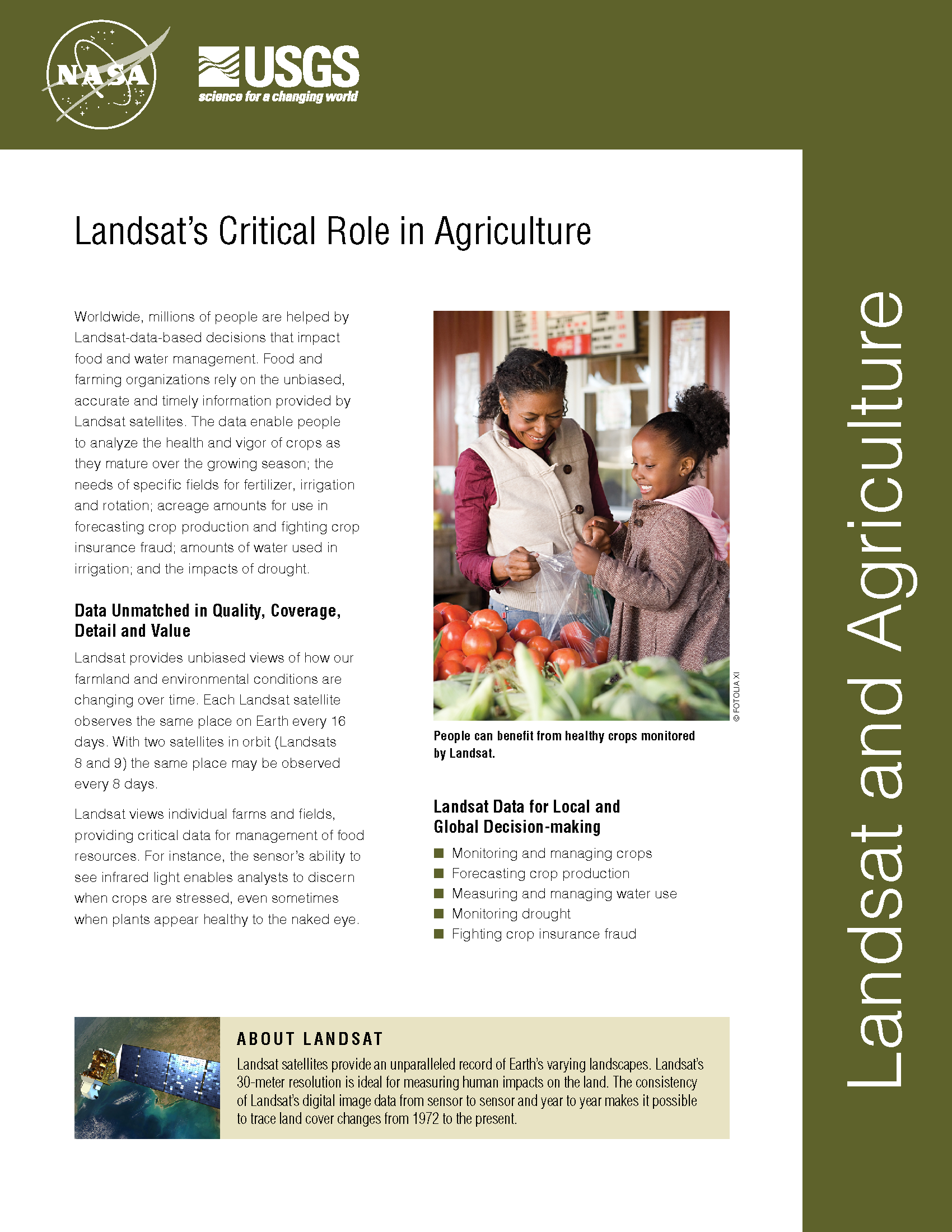Landsat's Role in Agriculture and Food Security
Worldwide, millions of people are helped by Landsat-data-based decisions that impact food and water management. Food and farming organizations rely on the unbiased, accurate and timely information provided by Landsat satellites. The data enable people to analyze the health and vigor of crops as they mature over the growing season; the needs of specific fields for fertilizer, irrigation and rotation; planted acreage to forecast crop production and fight crop insurance fraud; how much water is used in irrigation; and the impacts of drought.
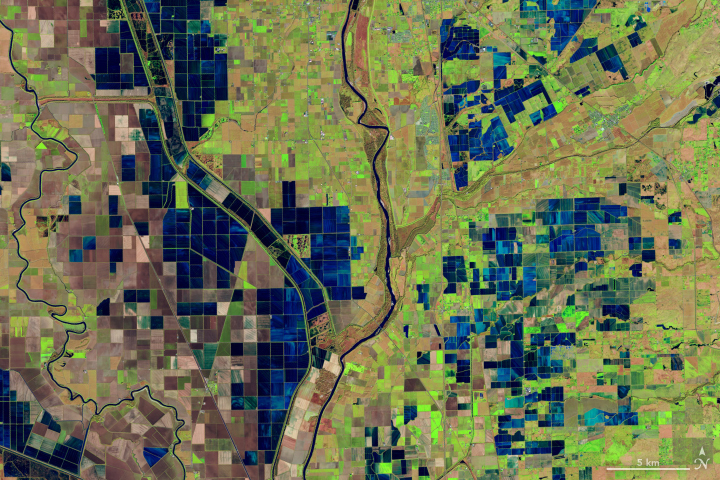
OpenET Study Helps Water Managers and Farmers Put Landsat to Work
As the world looks for sustainable solutions, a system tapping into Landsat data for water management has passed a critical test.

Join the Pale Blue Dot Visualization Challenge and Be Part of a Brighter Future
The Pale Blue Dot Visualization Challenge—aimed at making Earth observation data accessible to everyone—has officially kicked off.
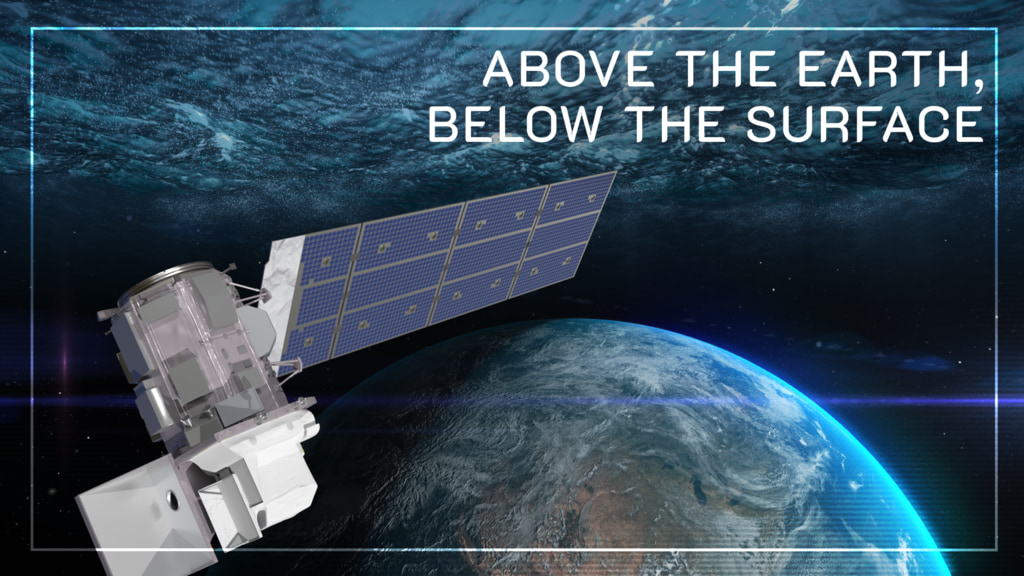
Above the Earth, Below the Surface: Landsat’s Role in Monitoring Water Quality
Safeguarding freshwater resources is crucial, and while scientists use a variety of ground-based techniques to gauge water quality, the Landsat program has provided water quality data from orbit for decades.
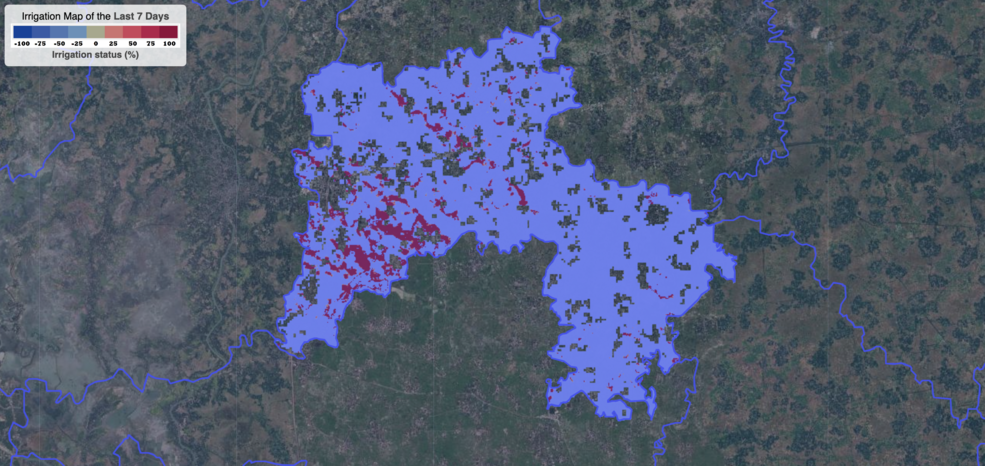
Satellite Data Helps Bangladeshi Farmers Save Water, Money, Energy
Satellite data are providing information to Bangladeshi farmers about how much water they are using, how much they have, and how much their crops need.
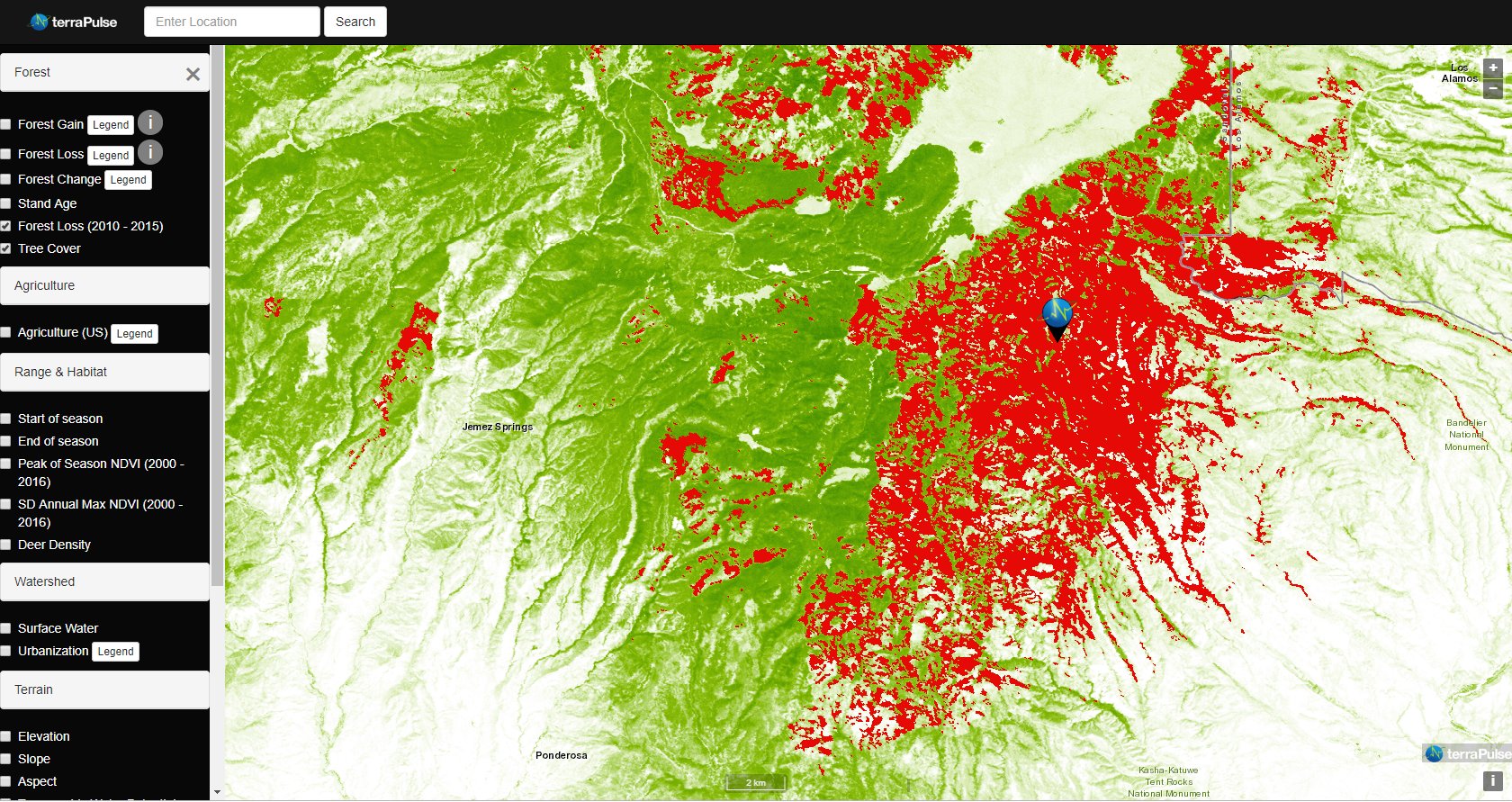
Taking the Pulse of Earth
Applying AI to Earth data—including Landsat—helps terraPulse reveal sustainable options for farming, reforestation, and land management.

Robert Washington-Allen and the Next Frontier of Dryland Research
Washington-Allen is a longtime Landsat data user working towards drylands restoration and sustainability solutions.
